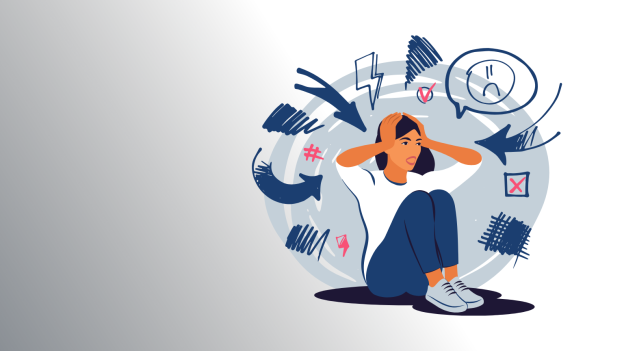Let’s talk about Substance Use Disorders
In 2020, more than 40 million people had a substance use disorder in America. Substance Use Disorders are a mental health condition where people have an uncontrolled use of substances (i.e., alcohol, tobacco, illegal drugs, etc). Those with substance use disorders continue to use regardless of the negative consequences and have extreme difficulty functioning in everyday life.
While the type and severity of substance use disorders varies, the most severe form of substance use disorders is addiction. It is common for those with substance use disorders to also have other mental health conditions like depression, anxiety, trauma, etc. Substance use disorders are common and serious, but very treatable with people making full recoveries.
Symptoms
Symptoms vary depending on the type of substance disorder. These are common symptoms that people with substance use disorder may experience:
Continuously using the substance even while experiencing negative side effect
Building a tolerance of the substance and needing to use more to feel the same “good feeling”
Trying to stop but finding it difficult to stop
Emotionally or physically feeling like you need to use substances to feel normal
Spending large amounts of money or time trying to secure substances
Feeling sick: trembling, hallucinations, sweating, and high blood pressure
If you or someone you know is experiencing symptoms, check your risk by taking our substance use disorder screening.
Treatment
Treatment will vary depending on the type and severity of the disorder, but most treatments include psychotherapy, medication, or a combination of the two.
It is important to know that treatment for mental health conditions are tailored to the individual and the information presented here are just a few of the many different treatment options.
Psychotherapy
Psychotherapy is a form of treatment conducted by a trained and licensed therapist (i.e., psychologist, social worker, or counselor). The therapist provides a supportive environment for individuals to talk openly about their mental health condition(s) and emotional challenges with someone who is objective and non judgmental. There are many different types of psychotherapy, but in general the therapist and patient work together to identify the causes of their mental health condition, develop coping mechanisms, and challenge thinking and behavioral patterns.
Cognitive Behavioral Therapy
One of the most effective forms of psychotherapy is cognitive behavioral therapy (CBT). This type of psychotherapy is based on the principles that mental health conditions derive from unhelpful ways of thinking and learned patterns of unhelpful behavior. Symptom relief occurs by individuals challenging and changing their thinking and behavioral patterns (American Psychological Association, 2017).
Support Groups
There are many different support groups for those with substance use disorders, like Alcoholics Anonymous. In a support group, all members are those who struggle with the same substance and together they hold each other accountable. People share their own experiences and some groups even have sponsors, typically a more senior member, who helps one through their recovery process.
Rehabilitation Centers
Some people with substance use disorders find an inpatient facility or rehabilitation center helps them recover without the distractions or temptations from the outside world. The facility provides a supportive environment with therapists, counselors, and other trained professionals to help them manage their disorder (CDC, 2022).
Medications
There are medications that help those with substance use disorders as they go through withdrawal symptoms. Additionally, they take other medications to help with their co-occurring mental health condition like antidepressants or antipsychotics (National Institute of Mental Health, 2023).
It is important to consult with a medical provider before taking any medications.

Resources
Looking for information, tools or resources for mental health?
Visit our online resource library, where you’ll find tools and apps to support your mental health and wellness, information about mental health and common mental health conditions, on-demand videos and trainings, interactive tools to help you build wellness and safety plans, research and reports, resources for schools and workplaces, and much more!

